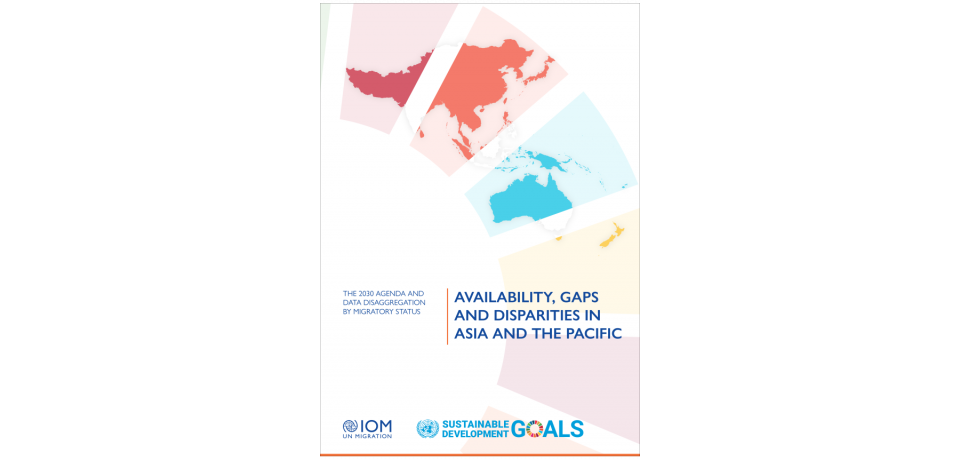The 2030 Agenda and Data Disaggregation by Migratory Status: Availability, Gaps and Disparities in Asia and the Pacific
Related Sustainable Development Goals and Global Compact for Migration Objectives
The contribution of migrants to the development of Asia-Pacific countries is fundamental, and their role in achieving the Sustainable Development Goals (SDGs) cannot be underestimated. Although leaving no one behind is key to the 2030 Agenda for Sustainable Development, several knowledge gaps exist in the relationship between migration and the SDGs. Therefore, it is crucial to have more detailed and inclusive data to ensure that migrants are included in the SDGs efforts.
The report assesses the availability of migration data in the Asia and Pacific and highlights the importance of the disaggregation of data by migratory status. The report also identifies data sources at the international and national levels that can be used to monitor migrant’s progress towards achieving SDG targets.
As indicated in the report, several challenges exist when it comes to data disaggregation by migratory status, making it difficult to measure how migrants’ outcomes towards achieving the SDGs differ from non-migrants. Additionally, limited data in the Asia–Pacific region show that SDG-related outcomes for migrants vary across the region and strategies towards the achievement of the SDG need to be tailored to different contexts. An increased focus on improving data availability and disaggregation is needed to ensure that SDG commitments translate into action for migrants as we move towards 2030 and beyond.
